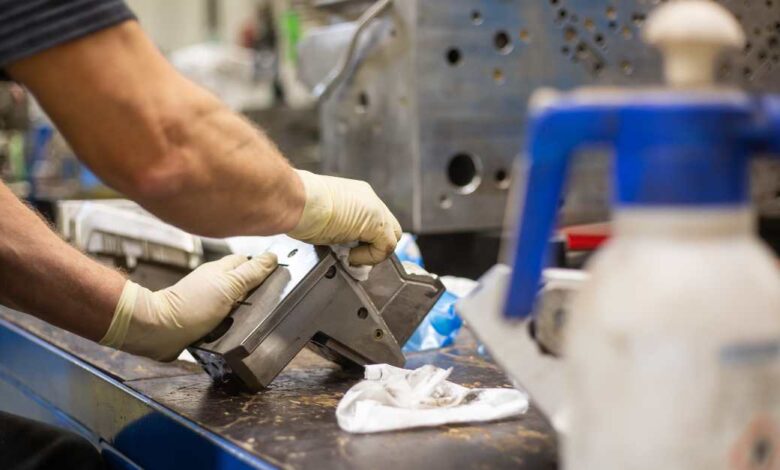Working with heavy machinery? See these crucial safety precautions

If you’re responsible for operating industrial equipment and machinery, it’s important to stay safe. However, when you’re new to the job or you’re suddenly required to work with machines you’ve never used before, it’s not always easy to know how.
We’ve outlined some of the most essential steps towards operating industrial machinery safely and sensibly in the workplace below.
Read More: How To Protect Your Business From Lawsuits in 2022
Always check safeguards
Only operate machinery with properly installed and adjusted safeguards. Never remove or attempt to get around safeguards, even if you think you could make your job easier by doing so.
It’s important not to use a machine with damaged or unauthorised safeguards, either. Even if you’re a trained mechanical engineer, it’s important not to tamper with machines that need to be officially regulated in the workplace.
Wear protective clothing
Working with industrial machinery calls for personal protective equipment. It’s likely that you’ll need to wear outer garments, eyewear and hand protection too.
Along with specialist clothing or uniforms provided by your employer, it’s important to choose suitable clothing for your job. Avoid loose-fitting, baggy clothes, and don’t let jewellery, accessories, or long hair get in the way of the task at hand.
Know your limits
Whether you’re recovering from an existing injury, struggling with an illness, or just not feeling as good as you used to, it’s important to know when to take a step back.
Research from the Health and Safety Executive proves that the rate of fatal injury at work increases with age. Operating industrial machinery can be hard work, with some tasks demanding a physically fit, strong adult to work effectively.
Figures show that fatal injuries to workers aged over 65 happen at four times the average rate across all other age groups, so it’s important to know when to start taking on lighter duties.
Never leave a machine unattended
Regardless of the machine you’re operating, never walk away from it while it’s still running. Leaving any machinery unattended is dangerous, irresponsible, and could incur serious consequences or harm to others.
Read More: 5 Most Common Types of Personal Injury Cases
Report problems immediately
If you turn up to your shift to discover a machine that’s not working as you’d expect, it’s your responsibility to report it to a duty manager or supervisor.
Resolving issues as soon as possible not only protects the safety of you and your team, but also ensures that business can operate more efficiently. Using a health and safety software such as EcoOnline can help you monitor your safety measures easier.
In the worst case scenario, if you were harmed by a machine you knew was faulty, you might not receive sufficient compensation for injuries you suffered at work.
Don’t rush
Lastly, it’s important to take your time. Never rush your tasks, even if you’re aiming for deadlines or working in a high-pressure environment. Work steadily and always consider the risks before proceeding, with the wellbeing of your team in mind.











